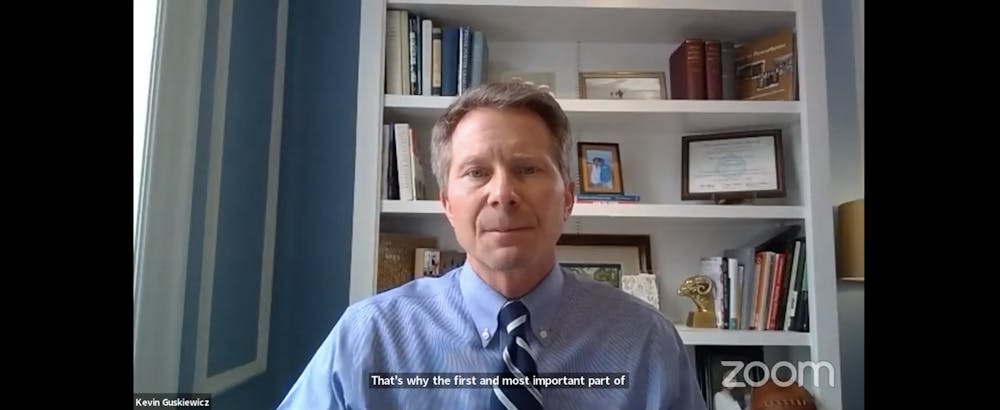Chairperson of the Faculty Mimi Chapman said she disagreed with a recent statement from a group of UNC professors calling on Chancellor Kevin Guskiewicz to resign — and that it does not represent the entire University faculty — at a Faculty Council meeting Friday.
The statement, posted by UNC-Chapel Hill’s chapter of the American Association of University Professors on Feb. 11, followed the revelation that UNC official Clayton Somers was involved in the negotiations for the UNC System’s 2019 Silent Sam settlements. Members of UNC’s AAUP chapter cited “serial dishonesty” from the chancellor and his fellow leaders that caused them to lose trust in the University’s leadership.
Chapman said she heard about this statement prior to its publication and wrote to the president of the AAUP chapter, which has roughly 70 members, to let him know she disagreed with the choice. Other leaders in faculty governance did the same, calling the decision “reckless,” she said.
At Friday’s meeting, Chapman and University leaders expressed an interest in moving forward, past discussions solely focused on the Silent Sam settlement. Other topics brought up at the meeting included UNC’s relationship with its cultural centers, vaccine rollout in Orange County and plans for the next semesters at UNC. The council also approved a recommendation aimed at “mitigating the impacts of COVID-19 on faculty careers.”
'A lightning rod'
In response to Chapman's comments at the meeting, history professor Jay Smith, vice president of the campus AAUP chapter, told The Daily Tar Heel it was disappointing that Chapman suggested her view of the situation was more representative of faculty opinion than the AAUP's statement.
Chapter member Sherryl Kleinman, who serves on the Executive Committee, added that Chapman’s comments sent the message that asking questions of the chancellor would be associated with recklessness.
Moving on from the AAUP statement, Chapman compared Silent Sam to a lightning rod.
“It keeps us focused on the statue and the settlement and diverts our attention from the other structures on our campus that perpetuate racism — both literal and figurative — and that desperately need our attention and focus,” she said.




